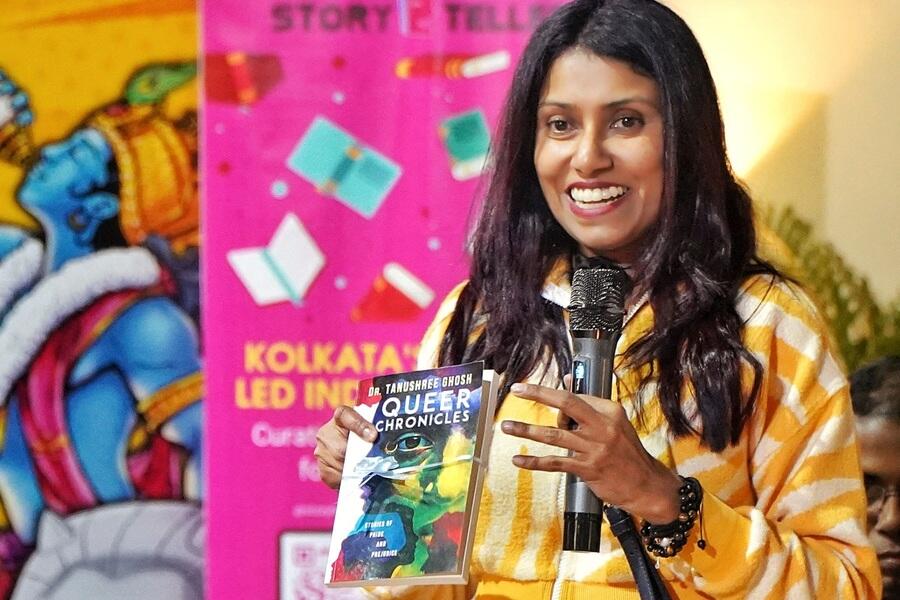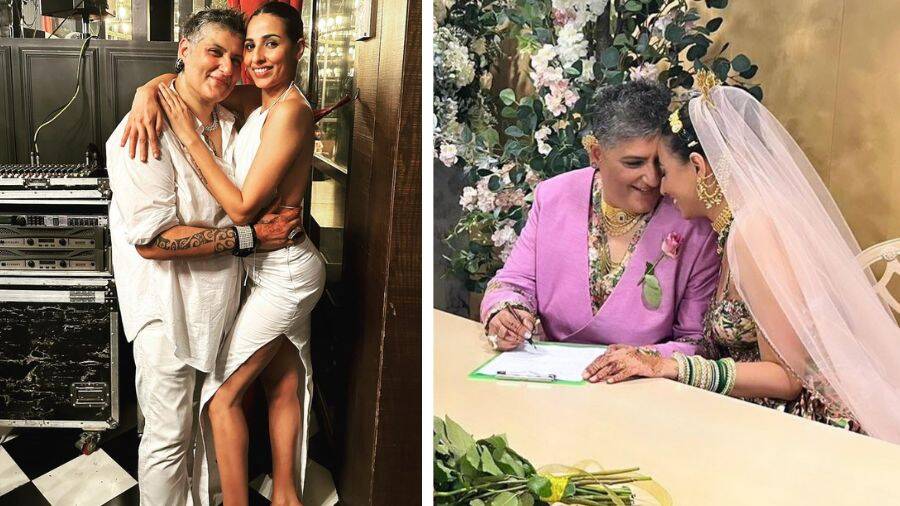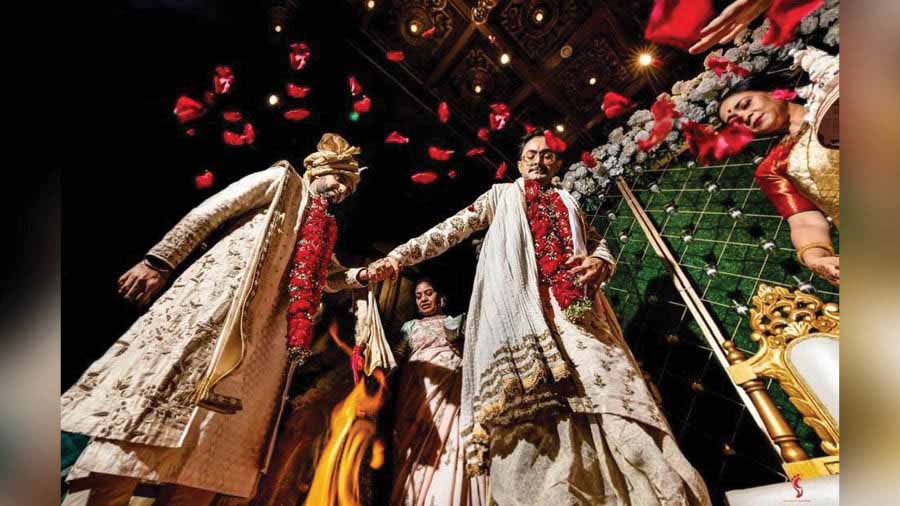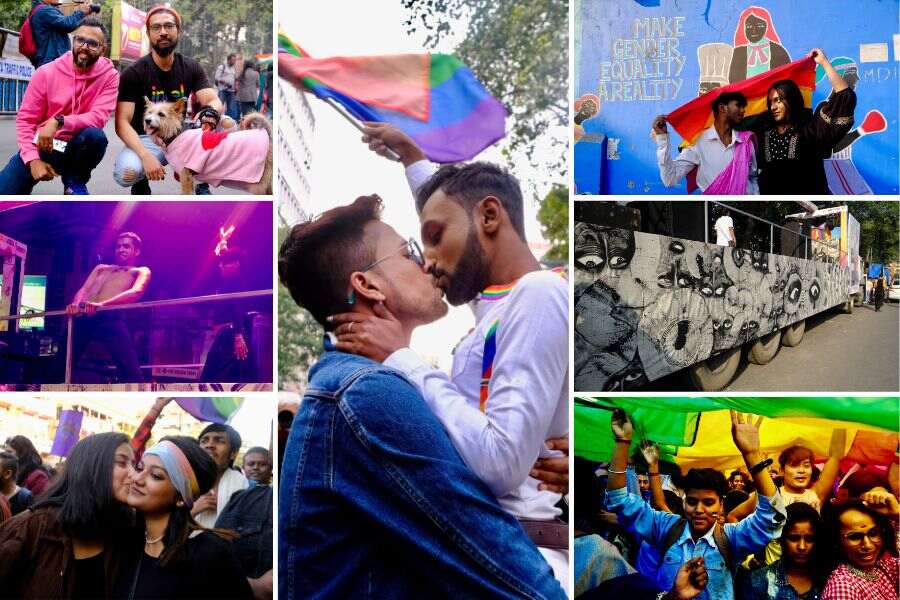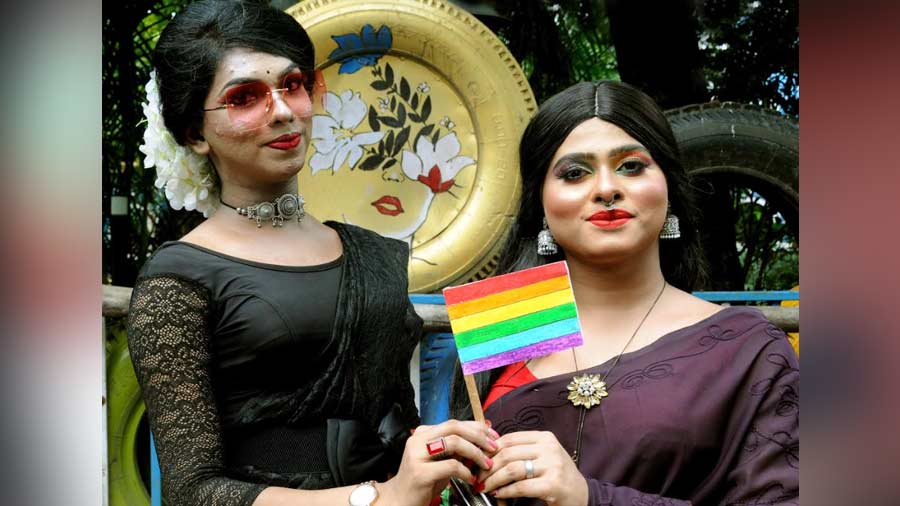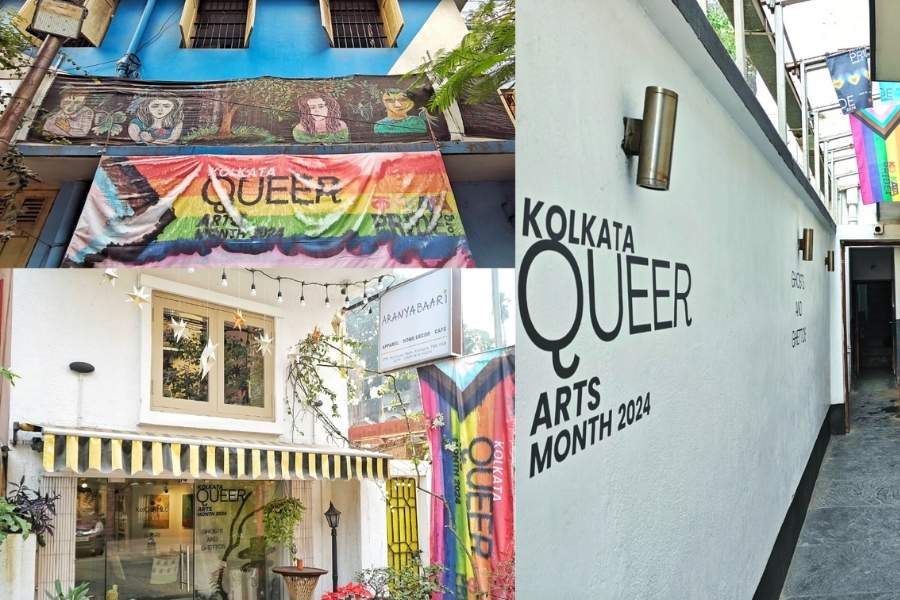The dialogue around gender identity is evolving. Joining the discourse is the contribution of Dr. Tanushree Ghosh, an alumna of Presidency University and Indian Institute of Technology, Kanpur. The doctorate degree holder from Cornell University, is trying to break the stigmas and stereotypes associated with the LGBTQIA+ community through her articles and books. She predominantly writes about gender and mental health, and has also written op-eds on the Syrian War.
Apart from being an author, Ghosh is a director of Manufacturing, Supply Chain and Operations, at Intel Corporation. She is also the founder of Her Rights Inc, a nonprofit organisation that works towards battling gender violence. As a social activist, she aims to ignite dialogues and discussion about gender identity, human rights and social justice. Ghosh also chairs the Alumni Engagement for pan-IIT NRI chapter in Southern California.
She debuted as a book author in 2018 with From An-Other Land and has recently launched her third book, Queer Chronicles. The author balances her time between the USA and India, and recently visited Kolkata for the launch of the book. The event in Kolkata, organised by Readomania at Storyteller Bookstore in Picnic Garden, was attended by activists Sree and Suchandra, author Ayan Pal, research and archivist Pawan Dhall, advocate Kaushik Gupta and poet Ipsita Ganguli, among others.
My Kolkata had a conversation with Ghosh about her latest book, her take on gender identity and spectrum in corporates as well as at a social-economic level in India and abroad, her next plans, and more. Edited excerpts follow…
My Kolkata: Tell us about Queer Chronicles.
Tanushree Ghosh: Queer Chronicles is an attempt to bring forward perspectives on gender and sexual identity concerns through fiction. The reason to do so is to increase dialogue and understanding across the aisles, which is critical for equity and inclusion.
The timing is critical now. It could seem that the debate has evolved into issues of accommodation (washrooms and pronouns) — of creating space — post acceptance in some places, while in reality, legalisation and granting of rights hasn’t happened, and might even be getting reversed owing to phobia.
Why did you decide to write a book on this topic?
I write on gender and social justice issues — anything that bothers me or leads me to introspect. I either form stories around it and fictionalise, or research deeply and put them out as non-fiction. This is not to say that I don’t research my works of fiction, but the extent and intent are different. I have been writing short stories on LGBTQ, or rather identity and acceptance, for a long time, some of which got some recognition.
Most of these stories originated from a true incident, which I witnessed or heard of, and which bothered me. Given the flaring debates about gender assertive surgery ban, sports team participation, marriage and parenting rights, and now reversing trends on DEI, I felt the time is right to bring these issues out as a collection to foster dialogues across the lanes.
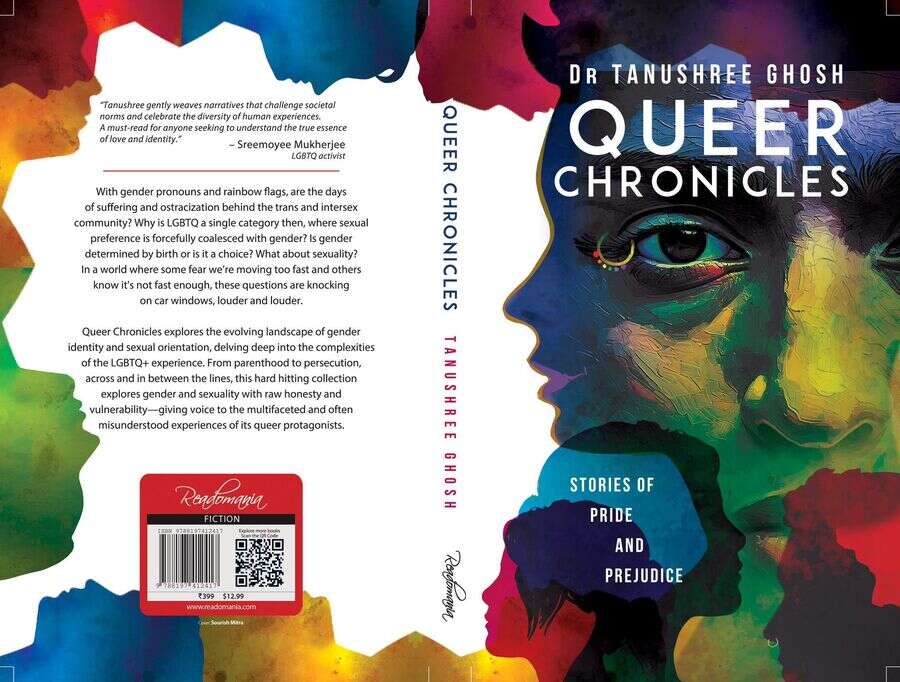
‘Queer Chronicles’ delves into gender identity, sexual orientation, and more Courtesy Dr. Tanushree Ghosh
You are a director at Intel Corporation as well as a social activist. How do you see the understanding of gender spectrum in the corporate setting, and at a wider social-economic level?
I don’t think there is a deep or widespread understanding of the gender spectrum at a larger socio economic level outside of the community. Even inside, from what I have learned, there are misconceptions, assumptions and generalisations. For example, a man wearing predominantly women’s clothing doesn’t have to be transgender — he can be a cis-male with a certain preference, his sexual orientation doesn’t matter either. I interviewed an individual (for a book, coming soon) from whom I learnt a lot about this and coincidentally this person was homosexual — but it doesn’t have to be the case. Just because he chose women’s clothing didn’t mean he was a trans man.
Another common misconception, which I also held until quite recently, was about transgender vs. intersex and many forms of intersex. Many don’t understand the nuances and more importantly, don’t have interest in understanding. I believe that’s one of the reasons for the singular grouping.
At a bureaucratic level, what are the changes that you think should be brought to the table to battle the stigma and stereotypes around gender identity?
Among the changes, we absolutely need to legalise marriage, parenthood and other relevant rights for same sex couples. We need to change verbiage in laws which criminalise consensual intercourse that doesn’t involve vaginal penetration and need to change laws that don’t recognise such acts as valid offense in case of assault and rape. We need to make sure everyone on the gender spectrum has the legal rights that cis-gender individuals enjoy. This is basic, once we achieve this truly and fully, then comes the debates on access and opportunities. Not saying that the latter needs to wait, but the former needs to happen asap.
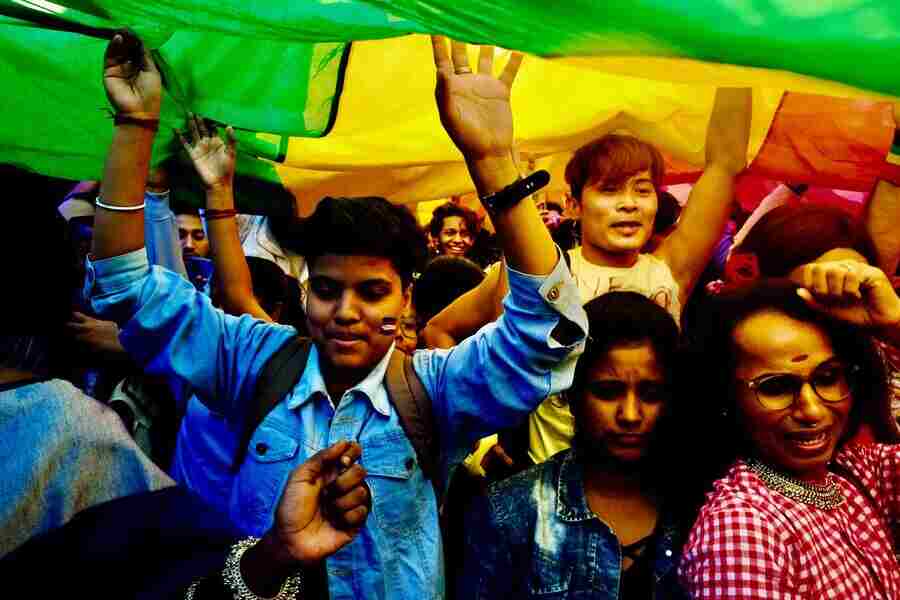
A scene at the Kolkata Rainbow Pride Walk, 2024 My Kolkata Archives
Kolkata hosts the Kolkata Rainbow Pride Walk — the oldest pride walk in India and South Asia. What is your take on Pride Month and Pride Walks that take place in various places across the globe, including Kolkata?
I think Pride walks and such movements are important, but I will repeat what some of the panelists in my launch (in Kolkata) stressed — it’s important that members outside of the community, ones on the other side of the aisle, join and understand. Otherwise it will be preaching to the choir and an existence outside of the spheres where the broad stroke changes are needed.
You are an IIT-Kanpur alumni. How do you see the dialogue around gender and identity discourse in Indian academia versus abroad?
I definitely think it’s becoming much more mainstream. There are wider cultural adaptations and showcasing, voices are stronger. Previously LGBTQ, leave alone I, folks would be shown as outliers and caricatures. We all know about religious conversion programmes for homosexuality and the common assumption that still exists that it’s a deviant way of life that can be cured. But I think it’s not uniform across religions, nations, communities and so on. For example, even if this would create controversy, it’s important to voice that in some religions, it is punishable by death. Also, some nations have moved forward while others haven’t.
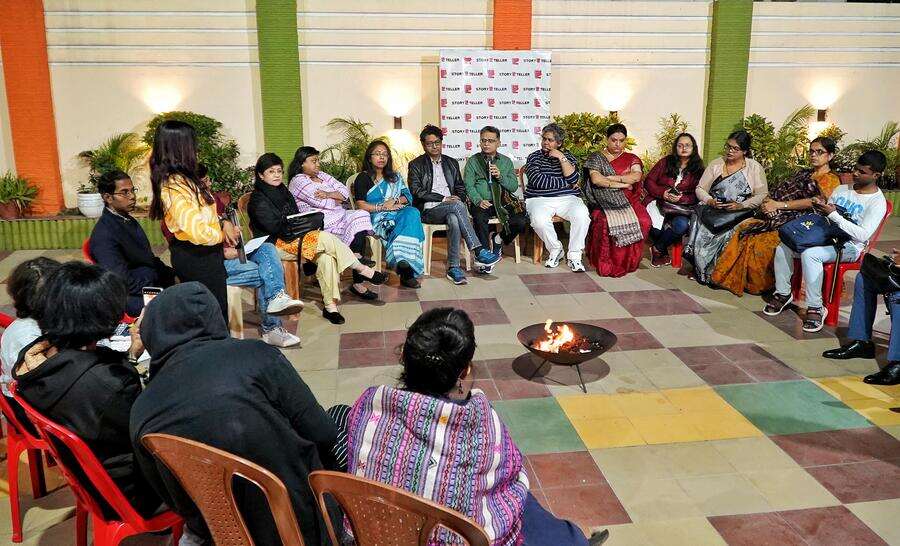
The author at a discussion during the launch of her book in Kolkata Soumyajit Dey
Tell us about your journey as an author so far…
I started my journey with a piece for The Huffington Post on returning to India post the Nirbhaya event, which went viral. Unfortunately, I don’t think women’s rights and safety, or for that matter, men’s rights and safety, have progressed much from there, as we know from the RG Kar incident. I have since then written op-eds, poems and stories in quite a few platforms as a regular contributor, published close to 15 anthologies and three books — From An-other Land, Beyond Me Too, and Queer Chronicles.
What are your next plans and projects? Are you planning your next book?
I am currently looking for a home for my first and only novel till date. It’s a work of fiction telling a mother-daughter saga against a multi-generational conspiracy. This one deals with patriarchy and its effect on life, love and relations.
